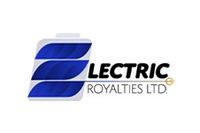The Conversation (0)
Renault-Nissan Joins the Electric Car Race in China
Aug. 30, 2017 04:35PM PST
Battery Metals InvestingThe Renault-Nissan Alliance plans to join forces with carmaker Dongfeng Motor to make electric vehicles in China. A mini SUV will be produced by 2019.
Another carmaker is set to jump into the electric vehicle race, bringing renewed optimism to the surging cobalt market.
On Tuesday (August 29), the Renault-Nissan Alliance, a strategic partnership between France-based Renault (EPA:RNO) and Japan’s Nissan (TSE:7201), announced plans to make electric vehicles in China in partnership with local automaker Dongfeng Motor.
The joint venture, called eGT New Energy Automotive, will develop an electric mini-SUV that will go into production in 2019. The vehicles will be sold under the partners’ own brands.
“The establishment of the new joint venture with Dongfeng confirms our common commitment to develop competitive electric vehicles for the Chinese market,” said Carlos Ghosn, chairman and CEO of the Renault-Nissan Alliance.
“We are confident to meet the expectations of the Chinese customers and to strengthen our global electric vehicle leadership position,” he added.
As environmental concerns continue to increase, China wants all-electric battery cars and plug-in hybrids to account for at least one-fifth of its vehicle sales by 2025. The Chinese government forecasts that 800,000 green energy vehicles will be sold this year in the country, including fully electric and hybrid cars.
Simon Moores, managing director of Benchmark Mineral Intelligence, recently told China Daily that “there is no doubt China is the global hub for the electric vehicle revolution.”
“China is producing its own electric vehicles, but the export vehicles are first likely to be Western-branded ones” from companies such as Tesla (NASDAQ:TSLA) and Volkswagen (FRA:VOW), he also said.
Renault-Nissan’s plan follows a similar announcement from Ford (NYSE:F) last week. The US automaker also joined forces with a Chinese partner to fight for a place in the electric vehicle market.
The news that carmarkers are shifting to electric cars is a good sign for cobalt, a key metal in the lithium-ion batteries used to power the vehicles. According to Benchmark, demand for these batteries will soar above 400 GWh by 2025.
As the need for batteries increases, cobalt demand is also expected to jump. Analysts forecast that cobalt demand will soar from 46,000 tonnes in 2016 to 76,000 tonnes by 2020. Moreover, CRU Group analysts predict that in 2017 the deficit in the market could triple compared to last year.
China, the world’s biggest auto market, is well positioned to produce and export batteries. That’s because the country not only controls cobalt supply and battery-grade refining, but also produces the vast majority of graphite anode material. The Asian nation is also locking up the lithium supply chain, said Moores.
“China already produces the bulk of lithium-ion battery cathode material,” China Daily quotes him as saying.
In terms of prices, cobalt sulfate has been surging throughout 2017, and is up over 14 percent so far this month. Benchmark says prices have been supported by increasing demand from lithium-ion battery cathode manufacturers, limited refining capacity due to environmental restrictions and the end of lower-cost cobalt in the supply chain.
Don’t forget to follow us at @INN_Resource for real-time news updates!
Securities Disclosure: I, Priscila Barrera, hold no direct investment interest in any company mentioned in this article.

